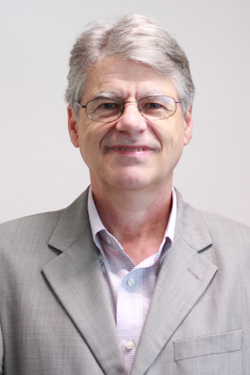Our latest Challenge Panel introduction comes from Professor John Flowerdew via the City University of Hong Kong. Read his brief autobiography below.
 The person who introduced me to corpus linguistics was the sadly departed John Sinclair of Birmingham University and later the Tuscan Word Centre, a man who can be considered a doyen of corpus linguistics. John visited the Middle-Eastern university where I was working, Sultan Qaboos University, Sultanate of Oman, in the mid-1980s, and introduced me and my colleagues to corpus linguistics. Following this visit, a very talented technician there, David Poulton, designed a concordancer for our use (concordancers were not generally available at the time) and I started to do concordancing work with the academic discourse that students at Sultan Qaboos University were having to grapple with. We used the corpus to develop English for Academic Purposes teaching materials, which were quite successful. I reported on that project in one of my first papers, Concordancing as a tool in course design (Flowerdew, 1993). At the same time, I became very interested in definitions and published a series of papers on that topic, including one in Applied Linguistics, entitled Definitions in science lectures (Flowerdew, 1992).
The person who introduced me to corpus linguistics was the sadly departed John Sinclair of Birmingham University and later the Tuscan Word Centre, a man who can be considered a doyen of corpus linguistics. John visited the Middle-Eastern university where I was working, Sultan Qaboos University, Sultanate of Oman, in the mid-1980s, and introduced me and my colleagues to corpus linguistics. Following this visit, a very talented technician there, David Poulton, designed a concordancer for our use (concordancers were not generally available at the time) and I started to do concordancing work with the academic discourse that students at Sultan Qaboos University were having to grapple with. We used the corpus to develop English for Academic Purposes teaching materials, which were quite successful. I reported on that project in one of my first papers, Concordancing as a tool in course design (Flowerdew, 1993). At the same time, I became very interested in definitions and published a series of papers on that topic, including one in Applied Linguistics, entitled Definitions in science lectures (Flowerdew, 1992).
At the beginning of the 1990s I moved to City University of Hong Kong and continued to work in academic discourse, but also became interested in the possibilities of corpus-based work in critical discourse analysis. Chris Patten became the last British Governor of Hong Kong at this time and he had a very powerful rhetorical style which I hope I was able to capture through the use of corpus tools based on a corpus of his speeches and other public pronouncements that I collected (in addition to interviews with him and his advisers and media data). I continued with this work after the transfer of sovereignty over Hong Kong from Britain to China, looking at the discourse surrounding the first Hong Kong Chief Executive (roughly equivalent to Governor). Most of this work is collected in my book Critical discourse Analysis in historiography (Flowerdew, 2013).
During all of my time working in academic discourse I have been interested in a particular type of abstract nouns, which I call signalling nouns, and which have very important discourse properties, words like problem, situation, result, importance, case, thing, etc.. I have spent several years working with a corpus of lectures, textbook chapters and research articles across disciplines on these nouns and my book on this topic, with Richard W. Forest, will be Signalling nouns in English: a corpus-based discourse approach (Flowerdew and Forest, in press).
As one of my contributions to CASS I am organising a one-day corpus workshop at my university in Hong Kong with colleagues from Lancaster to precede the Second Asia Pacific Corpus Linguistics Conference (APCLC 2014). The response has been great and we are likely to have to close the registration, which has to be capped at 80.
Flowerdew, J. (1992). Definitions in science lectures. Applied Linguistics, 13(2), 202-221.
Flowerdew, J. (1993). Concordancing as a tool in course design. System, 21(2), 231-244. Reprinted in Ghadessy, M., Henry, A. & Roseberry, R.L.(2001). Small corpus studies and ELT: Theory and practice. (pp. 71-92). Amsterdam, Philadelphia: Benjamins.
Flowerdew, J. (2012). Critical discourse analysis in historiography: The Case of Hong Kong’s evolving political identity. Basingstoke: Palgrave/Macmillan.
Flowerdew, J. and Forest, R. W. (in press). Signalling nouns in discourse: a corpus-based discourse approach. Cambridge: Cambridge University Press.
Did you miss our previous introductions? Click through to the Challenge Panel page to see profiles, and check back soon for updates.
